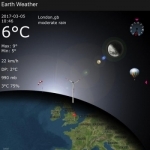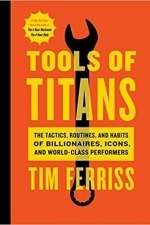
SpongeBob SquarePants: Bikini Bottom Beat
Games and Entertainment
App
Test your rhythm skills in this SpongeBob music game! Play along with SpongeBob, Patrick, Larry, and...

Earth-Weather
Weather and Travel
App
Use your iPhone, iPod Touch or iPad as real Weather station. Big Temperature display, windchill...

Snow Island Survival - Injustice of Commandos
Games
App
Hi, Agent 47, in this Commando adventure action Snow Island Survival Hero 3d , you have duty like...

Tools of Titans: The Tactics, Routines, and Habits of Billionaires, Icons, and World-Class Performers
Book
The latest groundbreaking tome from Tim Ferriss, the #1 New York Times best-selling author of The...
Self-help

Basic Accounting: Teach Yourself: The Step-by-Step Course in Elementary Accountancy
Book
Is this the right book for me? Basic Accounting is a complete, step-by-step course in elementary...
Purple Phoenix Games (2266 KP) rated Cloud City in Tabletop Games
Oct 21, 2020
Cloud City is a tile and building placing game for two to four players that is super light and super quick to play. In it players are building architects attempting to plan the greatest use of resources to create the most breathtaking buildings and connections of walkways all above the clouds. The winner is the player who amasses the most City Council votes by creating walkways that span daring lengths and connect same-sized buildings in the sky.
DISCLAIMER: We were provided a copy of this game for the purposes of this review. This is a retail copy of the game, so what you see in these photos is exactly what would be received in your box. I do not intend to cover every single rule included in the rulebook, but will describe the overall game flow and major rule set so that our readers may get a sense of how the game plays. For more in depth rules, you may purchase a copy online or from your FLGS. -T
To setup set aside the starter Cloud tiles for use as player tiles (they have bird icons on them). Shuffle the remaining Cloud tiles and make a giant draw stack. Reveal three tiles for an offer row. Each player draws three Cloud tiles into their hand to be kept secret from the other players. They also will take the appropriate building pieces to place on their starting tiles. Keep the building pieces nearby as they will be used during the game. Players may now begin their bids for architect supreme!
On their turn each player will place a tile from their hand to add to their city, place the corresponding building pieces on the two areas of the tile, optionally build walkways to connect buildings, and then refill their hand of tiles.
When placing a tile, a few rules must be observed: tiles must be placed orthogonally adjacent to an existing tile in the city, may be rotated any direction, and must never be placed outside of a 3×3 tile grid (like the placement rules in Kingdomino).
Once tiles are placed, grab the matching-colored building pieces for the newly placed tile and plop them down on the icons. As the building in the city begin the spring up above the clouds they will need to be connected to buildings of the same height.
To connect these buildings players will take from the supply walkway tokens of different lengths and place them between building of matching height, as shown below. It is these walkways that score the players points as votes from the City Council.
As the player now has only two tiles in hand, a third tile will need to be drawn from either the offer row or blindly from the top of the draw pile. It is now the next player’s turn and the game ends once all players have built their 3×3 city!
Components. This game consists of a bunch of thick cardboard Cloud tiles (48), a bunch more walkway tokens (93), and even more building pieces (96). The tiles are all thick cardboard with minimal but effective art, and are great quality. The walkways are similar thickness and quality and fit into the depressions on the building tops quite nicely. And finally, those building pieces. Oh man, these are great! Super durable plastic (or resin if there’s a difference? I was never very good at chemistry) in three colors and heights. Not needed but certainly appreciated is the detail on each piece with sculpted windows and doors. These are fun pieces to handle during game play and see being built in front of you. Excellent components in this box!
Gameplay is super simple and quick! There are only four real rules to remember (with some restrictions per rule, but they make sense) and as there are only three tiles in hand to build on a turn, AP-prone gamers will still be able to take acceptable-length turns. It’s quick, light, and boasts some great components.
Cloud City is a sure-fire hit and big time winner for me. In fact, I am planning on having my 4-year-old play it with me to truly test the box stating ages 10+. If I can get him to sit still for 30 minutes and concentrate on something other than the tablet or TV I think he will really enjoy it. If you are looking for a great gateway game that even could act as a filler with great components and gameplay that makes you consider the old, “Just one more” attitude, then give Cloud City a look. Blue Orange Games has really increased their production values and choices of games to release. They are remarkable! Just like Cloud City: remarkable!

SnoreMonitorSleepLab
Medical and Health & Fitness
App
App Name SnoreMonitor SleepLab Two years as top paid Medical App in Sweden. Most downloaded in...

Montessori MatheMAGICs: Dynamic Division - Educational Math Game for Kids - 2nd grade
Education
App
The genius and simplicity of Montessori division in a fun, intuitive and play again form. What is...

Flight Review Checkride
Education and Reference
App
All pilots, whether they fly for pleasure, business, or as a career, must take a flight review every...
Bob Mann (459 KP) rated People Just Do Nothing: Big in Japan (2021) in Movies
Aug 20, 2021
Positives:
- It well-surpasses the “6 laugh test” for a comedy. There are some scenes that I found extremely funny, with others that rated highly for me on the David Brent / Alan Partridge scale of cringiness.
- I’ve seen comment that the story is "silly" and “unbelievable”. But having experienced the crazy clash between English and Japanese culture first hand, it strikes me as very true to form! The way in which the Japanese music execs try to stylise the ground as a ‘boy band’ (“Bang Boys”!), which Grindah greedily goes along with, is a nice satire on the music industry asserting its brand over musician’s art.
- A subplot of a love story beween the inept Steves and the cute Japanese translator Ishika (Ayumi Itô) is nicely done and strangely touching.
- The good news is that you don’t need any previous experience of the characters to get fun out of the movie: you can jump right in. That being said though, I’m sure fans of the series will get more out of this than I did.
Negatives:
- While the ending was uplifting, I was itching to know what fallout (or success?) there was from the event we witnessed. Perhaps if its a box office success (unlikely I think!) then there will be a sequel.
Summary Thoughts on “People Just Do Nothing: Big in Japan”: IMDB is littered with disastrous reviews of British TV shows that have tried and failed to make the leap from the small screen to the big screen. “On the Buses”; “Are You Being Served?”; “Steptoe and Son”; “Please Sir”; “Love Thy Neighbour” – the list is endless. They are mostly all horribly unfunny. Even the great “Morecambe and Wise”, although showing occasional moments of brilliance, struggled to fully land any of their three big-screen outings.
The ‘go-to’ of many of these efforts was to “go abroad”: take the well-loved characters and put them into a ‘bigger’ and stranger pool. So “People Just Do Nothing: Big in Japan” was following a well-trodden path here. It’s a tribute to the team and their TV-series director Jack Clough, in his feature debut, that they pretty much pull it off.
I’d like to agree with Kevin Maher of “The Times” that the movie is full of “Japanese stereotypes… drunken businessmen, passive giggling women etc”. But having travelled extensively on business in Japan, it seems pretty close to the mark with its observations to me! More importantly, the film never seems to be particularly derogatory or disrespectful of the culture. For example, they take their shoes off too much!
Key to its box office success will be whether or not it can attract an audience outside of its niche TV fan-bases. As a member of that sub-group, I really wasn’t expecting to enjoy this one, but I actually did. It was good fun, and if you want a good laugh at the cinema – a pretty rare thing – then I’d recommend this one, even if – like me – you haven’t seen the original TV show.
(For the full graphical review, please check out onemannsmovies on the web, Facebook and Tiktok. Thanks!)

